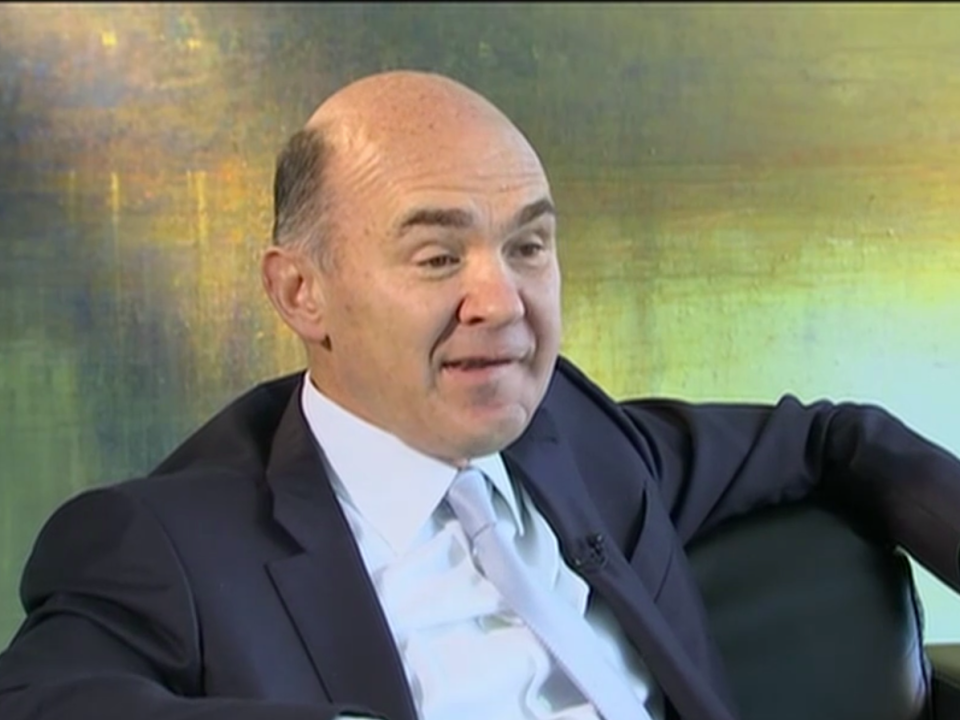The world's biggest oil trader thinks we may never see $100 oil again

MRKET REUTERS/John Gress JG/JDP
The price of oil might never again rise past $100 a barrel, and it will stay beneath $60 for as long as 10 years, according to the boss of the world's biggest independent oil trader.
In an interview with Bloomberg TV, Ian Taylor, CEO of Vitol Group, said: "It's hard to see a dramatic price increase. You have to believe that there is a possibility that you will not necessarily go back above $100, you know, ever."
The price of Brent crude, the European benchmark, peaked at about $140 a barrel in 2008 before crashing as low as $45 in early 2009.
It then recovered substantially, trading around the $100 mark for nearly three years from 2011 to 2014.

MRKET REUTERS/John Gress JG/JDP
Since summer 2014, however, the huge supply glut in global markets has forced prices as low as $28 a barrel. Right now, Brent and West Texas Intermediate, the US benchmark, are hovering between $32 and $35 a barrel.
Much has been written about whether oil has hit a bottom, with some major banks and analysts predicting that crude could fall to as little as $10 to $20 a barrel. Last month, Credit Suisse said it didn't think oil had bottomed yet. Taylor told Bloomberg he was unsure of whether oil had hit its lowest point, but he did predict that prices wouldn't recover beyond $60 a barrel for as much as a decade.
"We really do imagine a band, and that band would probably naturally see a $40 to $60 type of band," he said. "I can see that band lasting for five to 10 years. I think it’s fundamentally different."

MRKET REUTERS/John Gress JG/JDPTaylor also signalled that it should be a bumper year for Vitol, saying the company's net income this year would surpass the $1.35 billion it made in 2014, though the company does not publicly release its profits.
Taylor noted that income would not pass that of the company's record year in 2009, when it made $2.3 billion.
While energy and commodity firms have been hit hard by the crash in the price of oil, traders and brokerages have been able to cash in and grow their profits substantially.
In December, Trafigura, a competitor of Vitol, announced that it would be paying workers about £500 million in bonuses, thanks to the huge amounts of money made during oil's 70% slump.
Just two weeks ago, the brokerage Tullett Prebon reported a 14% increase in revenues thanks to a "pick-up in the level of activity in the oil and related products markets."
NOW WATCH: Wall Street's unbelievable secret history
See Also:
Oil workers will have to make the choice between layoffs and pay cuts
MORGAN STANLEY: We're slashing our oil price forecast by 50%
One major oil CEO thinks the industry is in a 'severe and prolonged down cycle'
SEE ALSO: Oil prices may crash further because of oil producers' high debt levels

 Yahoo Finance
Yahoo Finance 
